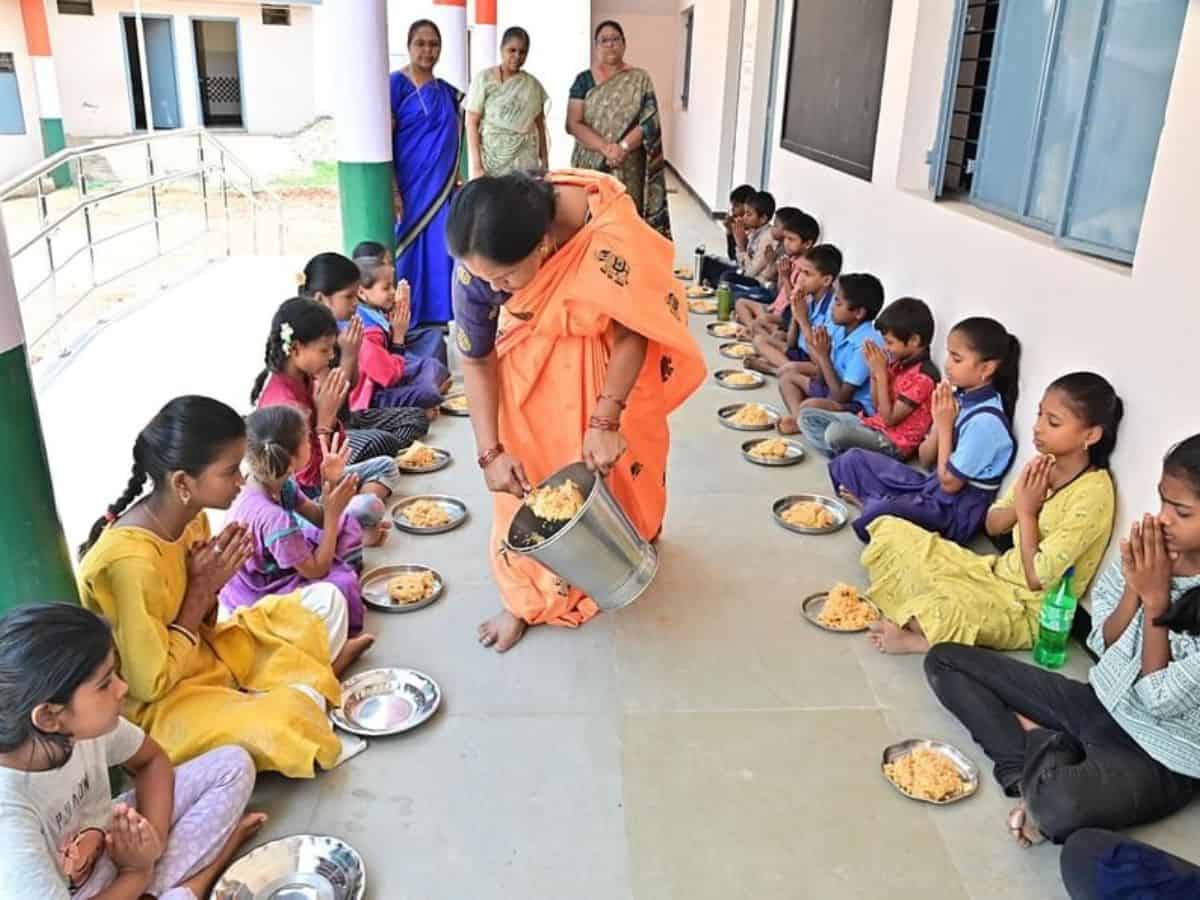
Bengaluru: In response to the prevailing severe drought conditions across the state, the School Education Department has undertaken a crucial initiative to provide mid-day meals to students of government and aided schools throughout the summer vacation period. This decision aims to ensure that students do not suffer from hunger during the extended break, spanning 41 days.
From April 11 to May 28, excluding Sundays, students in government and aided schools across 223 taluks of the state will receive hot meals between 12:30 pm and 2:00 pm. Notably, in districts with elevated temperatures such as Bidar and Raichur, the distribution of hot meals will commence earlier, from 10 am to 11:30 am.
To streamline the distribution process, the school with the highest student enrollment in villages with multiple schools will serve as the designated hot meal centre. Students from nearby junior primary, senior, and high schools within a radius of 1-2 km will be directed to this central location for their mid-day meal.
Parents must consent their children to avail of the hot meals. However, exceptions are made for children who may be away from home during the holidays, either working for wages or visiting relatives. Additionally, teachers serving during this period have been granted paid leave to manage their personal affairs.
While the initiative has garnered appreciation for addressing student welfare during the drought, concerns have been raised about the feasibility of centralized meal distribution.
Sivak Anjaneya, president of the Davanagere district unit of the SDMC Union, highlighted the challenges faced by young students in travelling long distances under the scorching sun.
In light of the mid-day meal scheme, Anjaneya also urged government schools to organize extracurricular activities such as painting, singing, and dancing to engage students during the holidays, reminiscent of the activities privileged children enjoy at summer camps.
Overall, the mid-day meal scheme has received overwhelming support from students and parents in the state. The School Education Department has advised maintaining cleanliness in kitchen facilities and urged seeking assistance from local authorities in case of any drinking water issues.
As the initiative rolls out, it stands poised to alleviate hunger among students and uphold their well-being amidst challenging environmental conditions.
